Books on the Wall posts featuring “Words Wednesday” book quote graphics. New graphics added every week, so be sure to check back often!
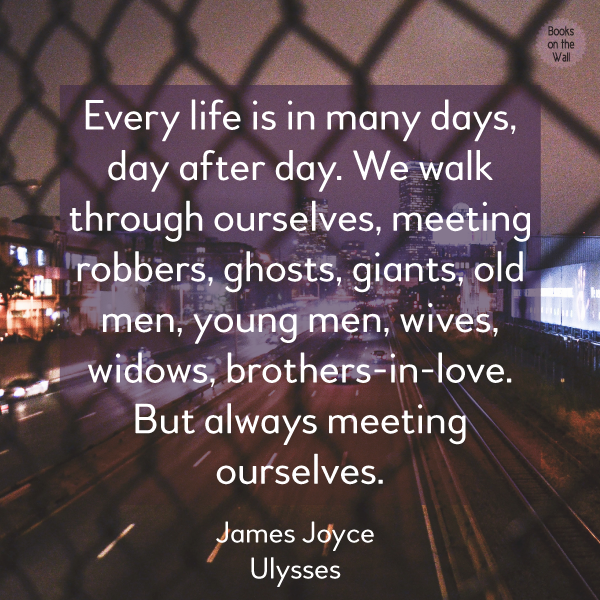
This quote comes from James Joyce’s masterpiece, Ulysses. Originally published in serial form over two years (1918 to 1920), Ulysses is widely renowned as the most important example of modernist literature. Written in a challenging stream-of-consciousness style, Ulysses is often ranked as the best English-language novel of all time. “Every life is in many days, day after day. We walk through ourselves, meeting robbers, ghosts, giants, old men, young men, wives, widows, brothers-in-love. But always meeting ourselves.” -James Joyce, Ulysses Did you know? You can read Ulysses for free on Project Gutenberg!
Continue Reading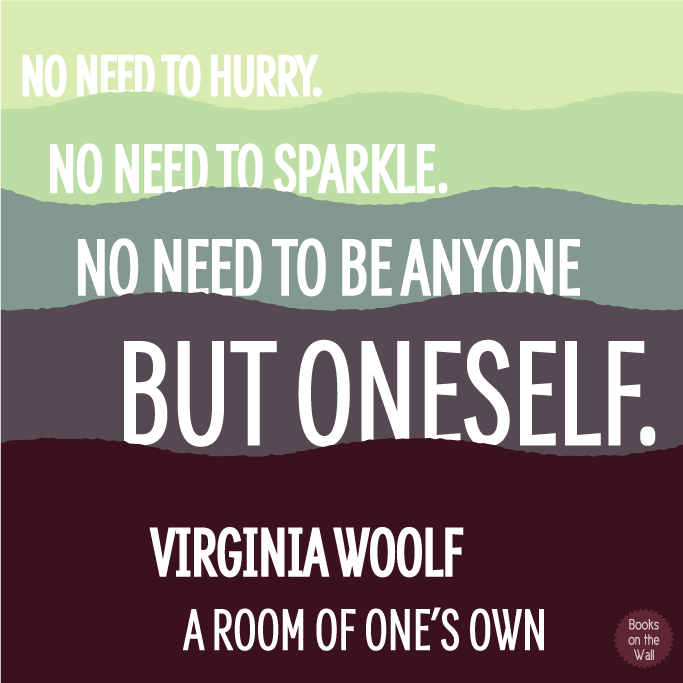
This quote comes from Virginia Woolf’s autobiographical extended essay, A Room of One’s Own. Originally delivered as a lecture series throughout 1928, A Room of One’s Own is considered one of the earliest and most prominent feminist texts. In this essay, Woolf explores the limitations historically imposed on women seeking to pursue an education and a career in writing. Nearly one hundred years later, many of Woolf’s arguments and questions about the expectations and opportunities for women are still unfortunately and exceedingly relevant. “No need to hurry. No need to sparkle. No need to be anyone but oneself.” -Virginia Woolf, A […]
Continue Reading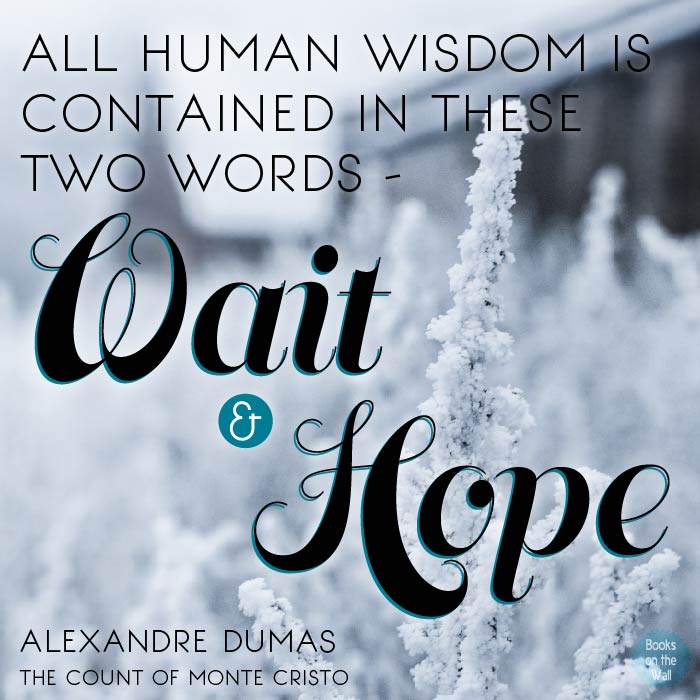
This quote comes from Alexandre Dumas’ beloved classic The Count of Monte Cristo. Published in serialized form from 1844 to 1845, The Count of Monte Cristo is a classic adventure tale of imprisonment, vengeance, and forgiveness. Alexandre Dumas is also widely celebrated for The Three Musketeers. Want more of The Count of Monte Cristo by Alexandre Dumas? Check out our Count of Monte Cristo book poster, a 36″x24″ design that contains up to Chapter 34 of the classic novel.
Continue Reading
This quote appears in the very first few sentences of Lady Chatterly’s Lover, written by DH Lawrence and first published privately in Italy in 1928. The novel was banned in countries like the United Kingdom for many years due to its explicit language and frank depiction of sexuality. “We’ve got to live, no matter how many skies have fallen.” -DH Lawrence, Lady Chatterly’s Lover
Continue Reading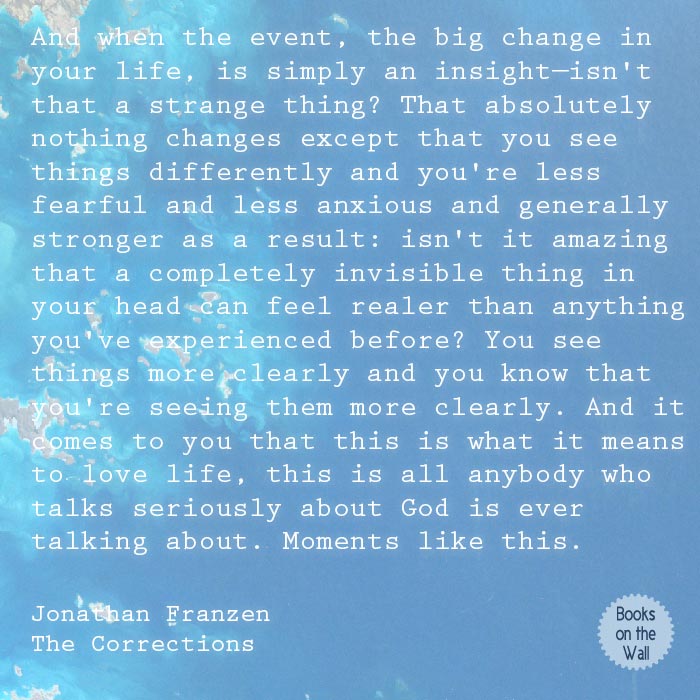
Winner of the National Book Award in 2001, Jonathan Franzen’s The Corrections tells the story of the Lambert family from a fictional Midwestern town called St. Jude. The three adult children left their parents in St. Jude many years before, but now each one faces his or her own brand of personal crisis while their father slowly descends into dementia. Listen to Jonathan Franzen’s interview about The Corrections on NPR. “And when the event, the big change in your life, is simply an insight—isn’t that a strange thing? That absolutely nothing changes except that you see things differently and you’re less fearful […]
Continue Reading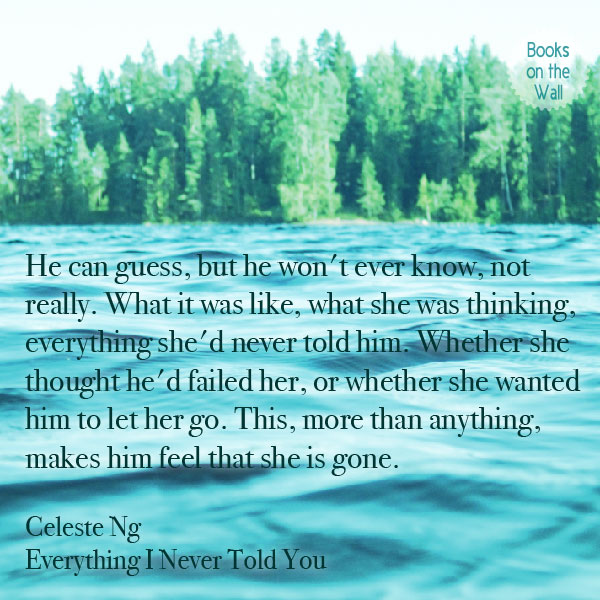
This quote comes from Celeste Ng’s recent novel, Everything I Never Told You. Though the plot primarily focuses on what happened to a missing teenage girl named Lydia, the story really deals with themes of family, culture, and identity (and especially how these three aspects of life interact). The novel explores the sometimes tragic distance between what we say and what we mean and who we are and who others think we are. We just finished the novel and would definitely recommend it as a quick but deeply affecting read. He can guess, but he won’t ever know, not really. What […]
Continue Reading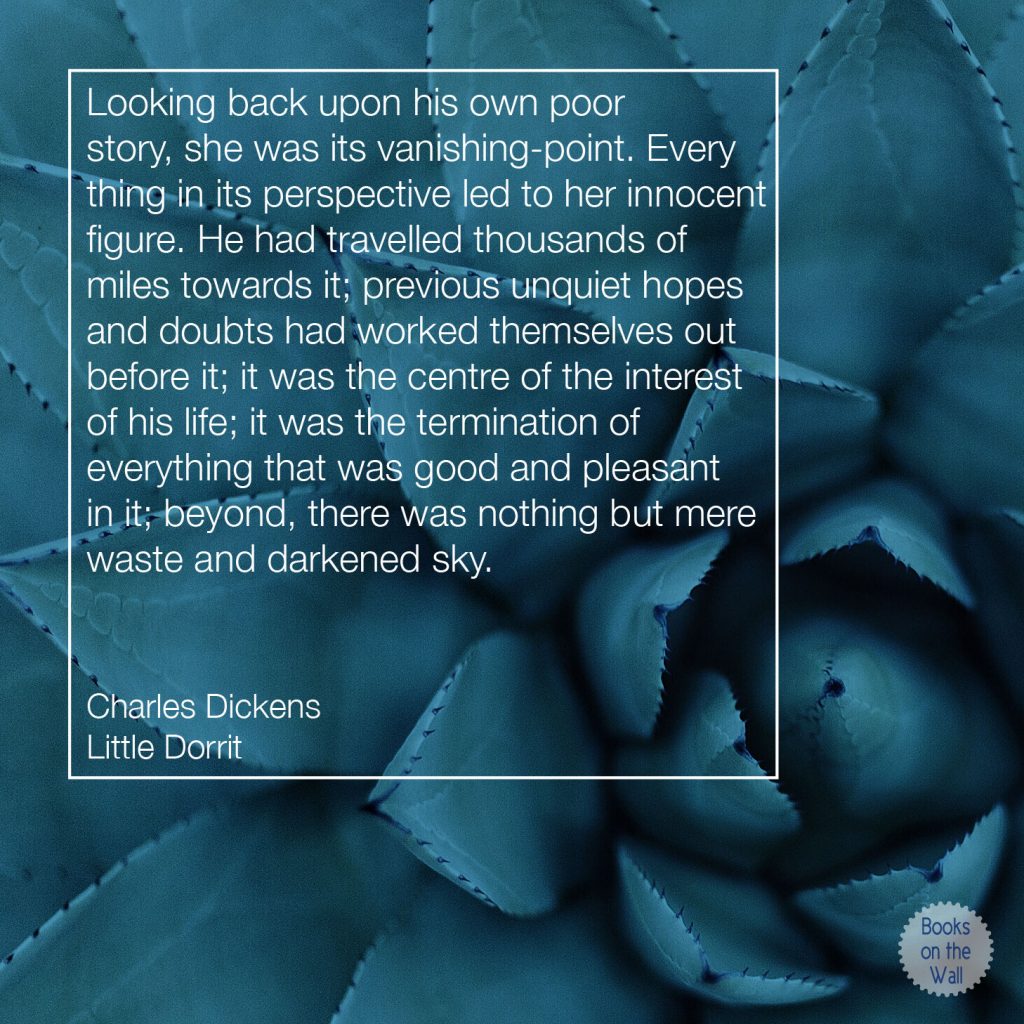
Today’s Words Wednesday quote comes from Charles Dickens’ Little Dorrit, published between 1855 and 1857. Like most of Dickens’ work, Little Dorrit explores themes of poverty, class, and expectations in Victorian England. “Looking back upon his own poor story, she was its vanishing-point. Every thing in its perspective led to her innocent figure. He had travelled thousands of miles towards it; previous unquiet hopes and doubts had worked themselves out before it; it was the centre of the interest of his life; it was the termination of everything that was good and pleasant in it; beyond, there was nothing but […]
Continue Reading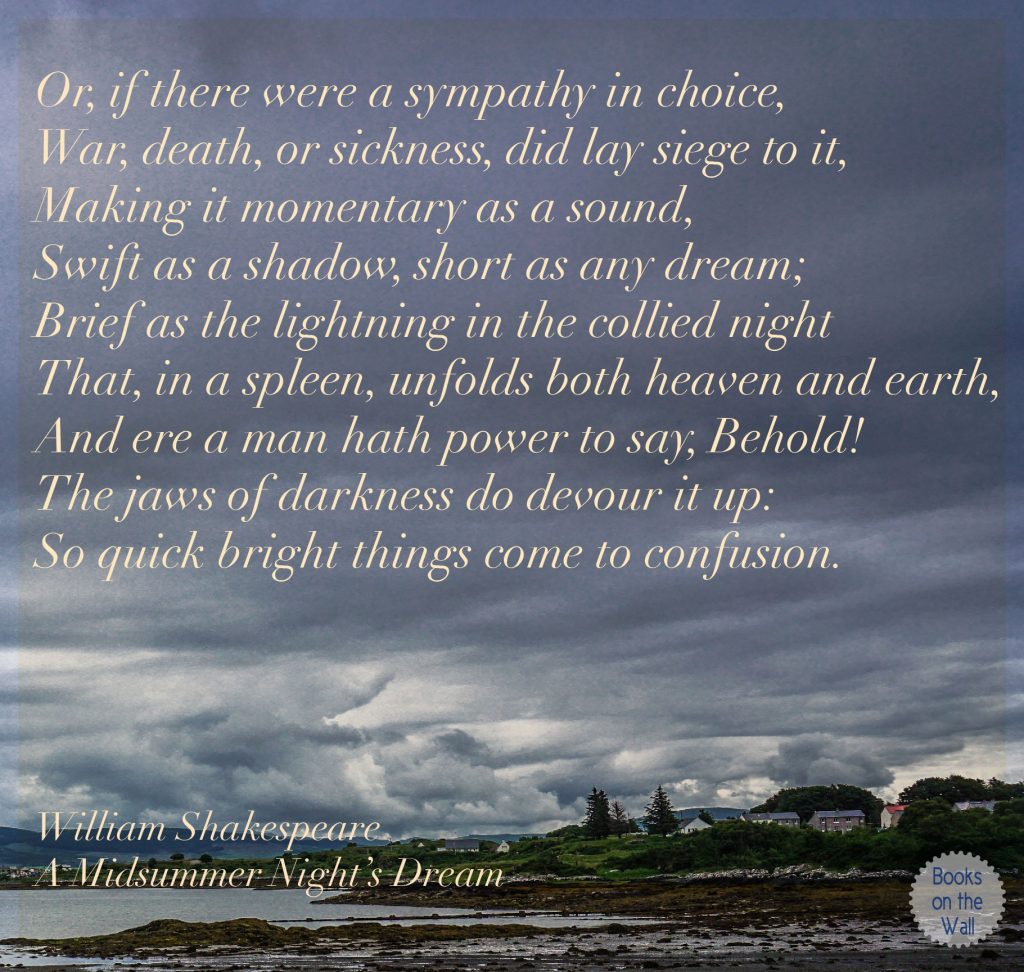
This quote comes from William Shakespeare’s play, A Midsummer Night’s Dream. Believed to have been written in the late 1500s, A Midsummer Night’s Dream follows the adventures of four young Athenians as they fall in and out of love in a remote forest controlled by fairies. This text is spoken by Lysander to Hermia, describing the travails of impossible love. “Or, if there were a sympathy in choice, War, death, or sickness, did lay siege to it, Making it momentary as a sound, Swift as a shadow, short as any dream; Brief as the lightning in the collied night That, […]
Continue Reading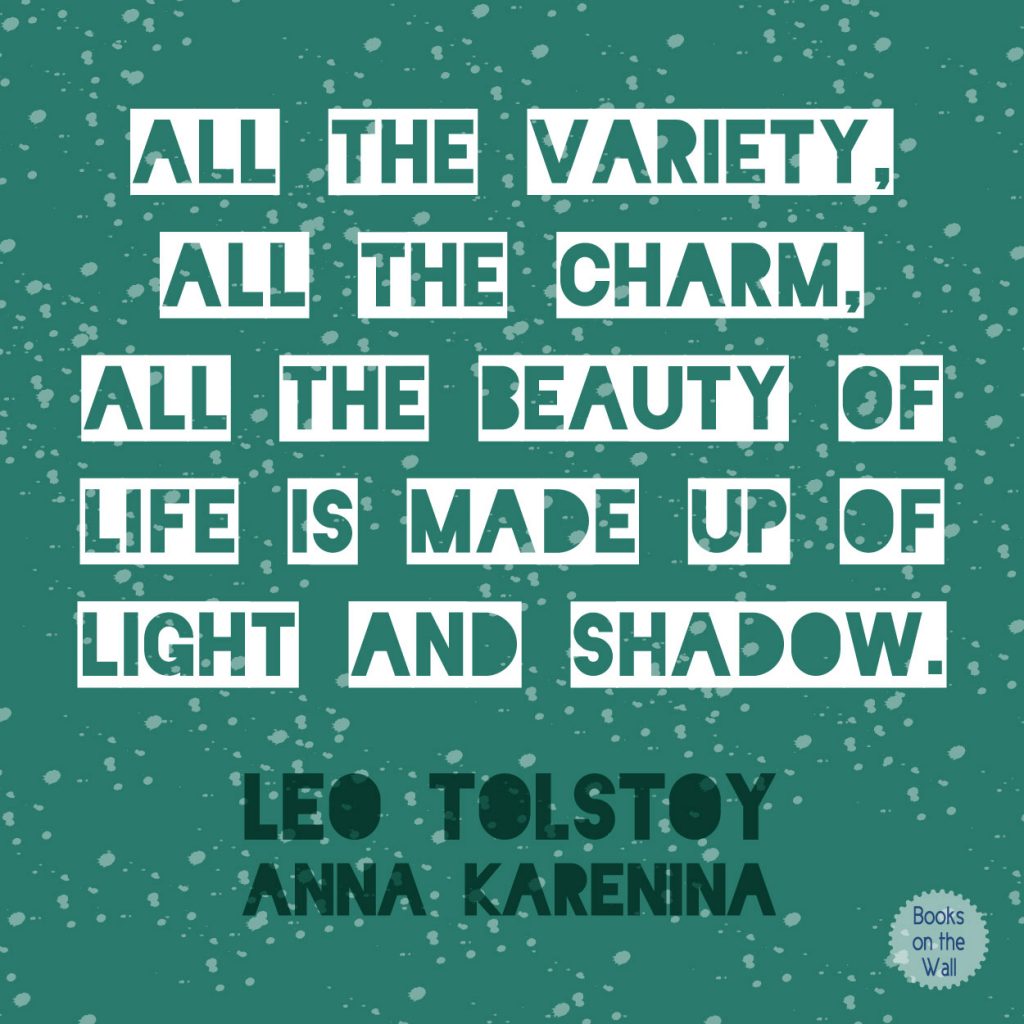
This quote comes from Leo Tolstoy’s famous novel, Anna Karenina, which was published in installments over four years, from 1873 to 1877. Anna Karenina follows the life of the titular character, an upperclass woman in feudalist Russia. Acclaimed for its themes of love, family, marriage, and society, Anna Karenina is commonly named among the most important written works of all time. “All the variety, all the charm, all the beauty of life is made up of light and shadow.” Leo Tolstoy, Anna Karenina
Continue Reading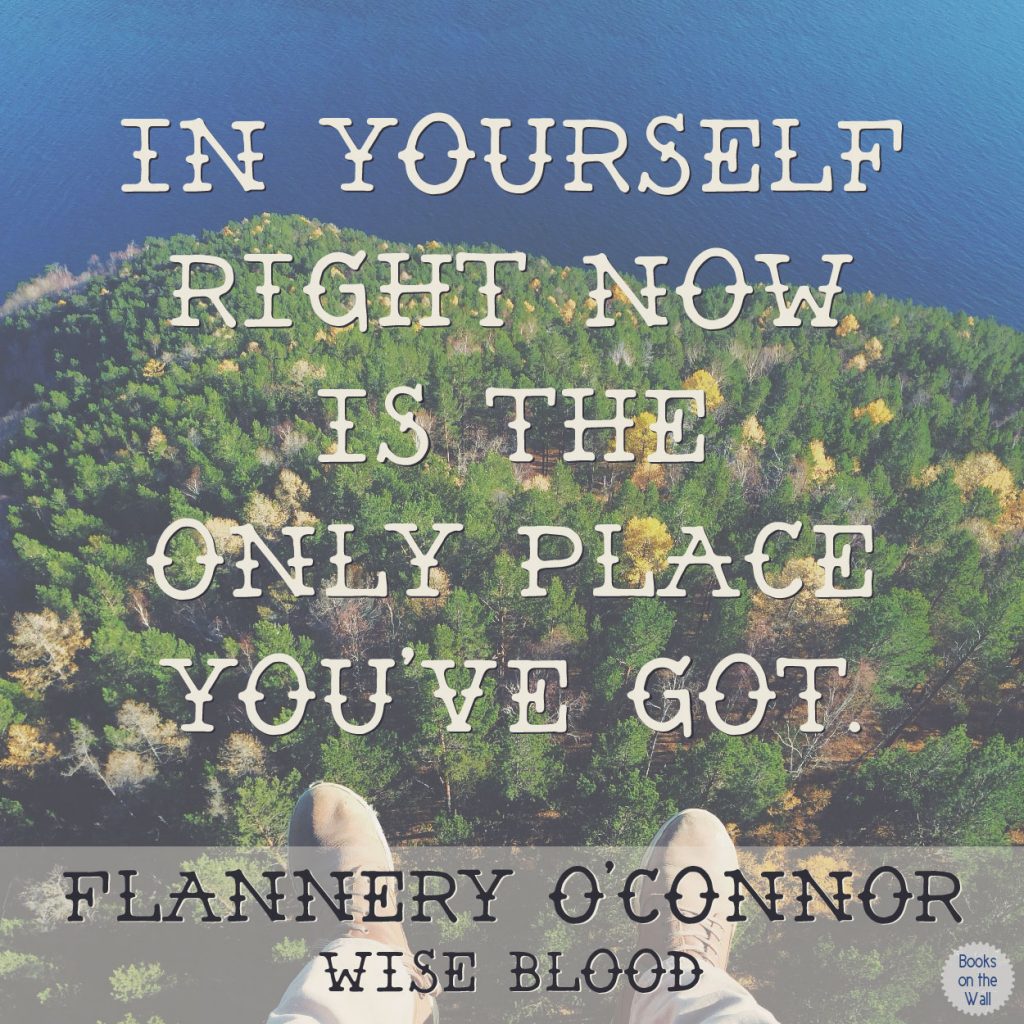
This quote comes from Flannery O’Connor’s acclaimed novel, Wise Blood. Published in 1952, Wise Blood, like so many of O’Connor’s work, explores dark themes of life, death, and religion in the American South. Wise Blood was Flannery O’Connor’s first novel and was comprised of several previously written short stories, including her master’s thesis. “In yourself right now is the only place you’ve got.” Flannery O’Connor, Wise Blood
Continue Reading